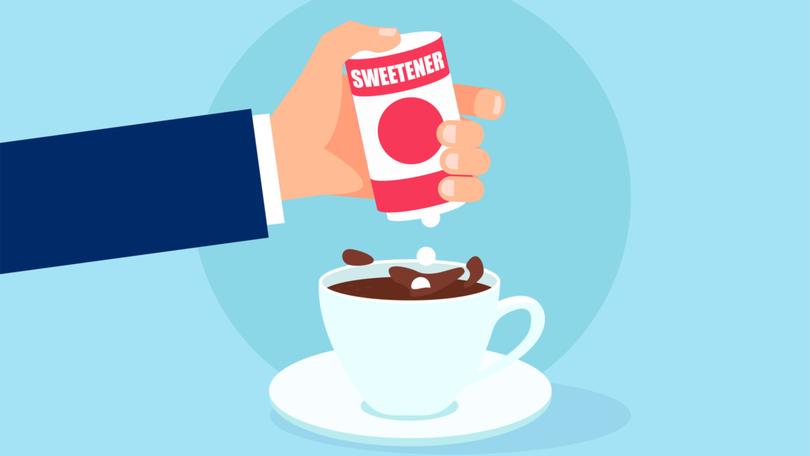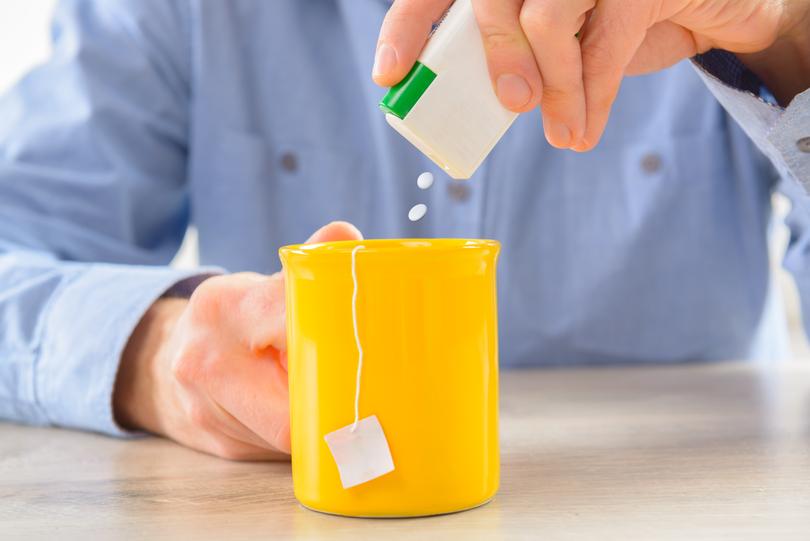SARAH DI LORENZO: Why artificial sweeteners are doing more harm than good
SARAH DI LORENZO: Artificial sweeteners were once hailed as the solution to having it all when it came to enjoying something sweet without any calories. But research now paints a very different picture.

Artificial sweeteners were once hailed as the solution to having it all when it came to enjoying something sweet without any calories.
We see them everywhere, in many of the packaged foods we eat.
All you need to do is look for words on products like diet, lite, sugar-free and zero and you are almost guaranteed they have artificial sweeteners in them.
Sign up to The Nightly's newsletters.
Get the first look at the digital newspaper, curated daily stories and breaking headlines delivered to your inbox.
By continuing you agree to our Terms and Privacy Policy.On a label, they can be disguised by numbers such as 955, 954, 961, 952, 951, 956 and 950 and are 200 to 500 times sweeter than sugar with names such as aspartame, neotame, sucralose, acesulfame potassium and saccharin.
Artificial sweeteners have been around since 1879 when the taste of saccharin was discovered by accident.
But it was not until 1950 when saccharin was made from phthalic anhydride, that its popularity started.
In the 1960’s soft drinks such as Coca-Cola’s Tab were artificially sweetened and their share market value tripled.
Today you will find artificial sweeteners in chewing gum, some yoghurts, jelly, cordial, weight loss products such as some protein bars and powders, some syrups and tabletop sweeteners.
Artificial sweeteners were designed to help with weight loss, but if you juxtapose their introduction of a timeline to the rise in obesity and Type 2 diabetes they certainly have not lived up to what they have promised.
The truth is they lead to obesity and are damaging our health.
Even though artificial sweeteners provide taste, research demonstrates the lack of calories prevents the complete activation of the food reward pathway therefore they lead to an increase in appetite for sugary foods.
When we normally eat naturally sweet foods they trigger the release of brain chemicals and hormones, the food reward pathway, which is so important for feeling satisfied.
The research study involved MRI (magnetic resonance imaging) on participants showing sugar consumption decreased signalling in the hypothalamus, the appetite regulator in our brain.
The response on the MRI was not seen when the participants consumed Aspartame so the brain does not register the filling effect, therefore sweet foods minus the calories means you want to consume more.
There is research showing excessive consumption is associated with Type 2 diabetes, dementia and heart disease.
The World Health Organisation does not recommend artificial sweeteners for weight management.
So looking at the research on animal studies, they have proven without a doubt artificial sweeteners cause weight gain, tumours in the brain, bladder cancer, behavioural problems and anxiety.

In humans, there is research noting carcinogenicity.
When it comes to the gut, a recent study on Neotame showed it can cause significant damage to the gut by breaking down the cells lining the intestine and causing healthy gut bacteria to become diseased resulting in them invading the gut wall and leading to gut disease.
Now think of the gut-brain axis now you can see how dementia and behavioural problems are linked.
A meta-analysis of clinical trials has shown links to insulin resistance, cardiovascular disease, dementia and stroke but populations and consumption vary.
This is why when researching you will find there are many studies on artificial sweeteners showing everything from “safe under all conditions” to “unsafe at any dose”.
There is a lot of information out there and we don’t have long-term studies on artificial sweeteners.
The truth is, it really is simple, at the end of the day they are chemicals made in a lab our bodies are not designed for.
Plus they have failed to do what they were designed for.
The healthiest and only way to satisfy your sweet tooth is to enjoy sweet whole foods such as fruit and vegetables that will deliver your vitamins, minerals, fibre and antioxidants and for that extra boost get your sweetness from bees (honey) and trees (maple syrup).
